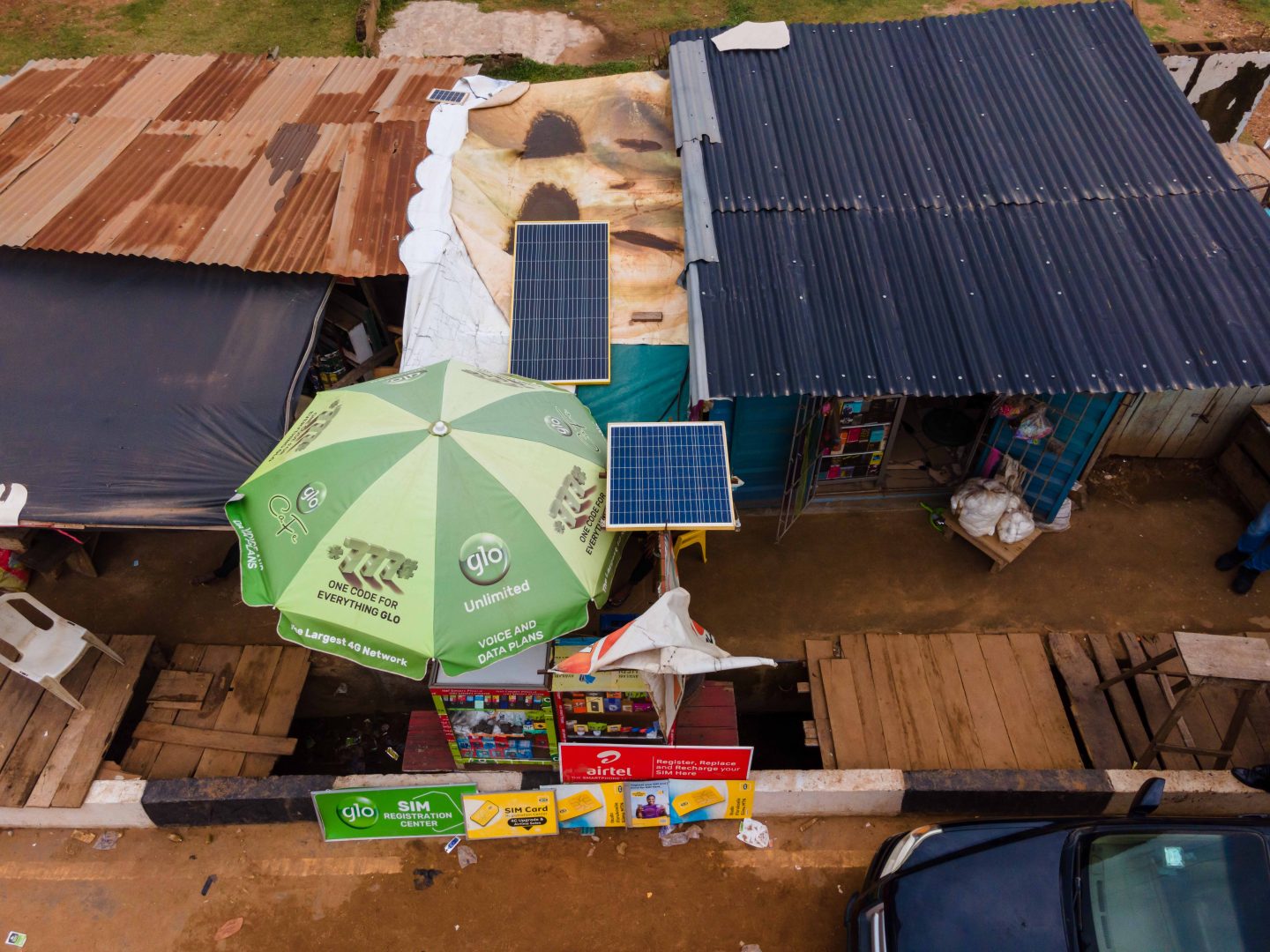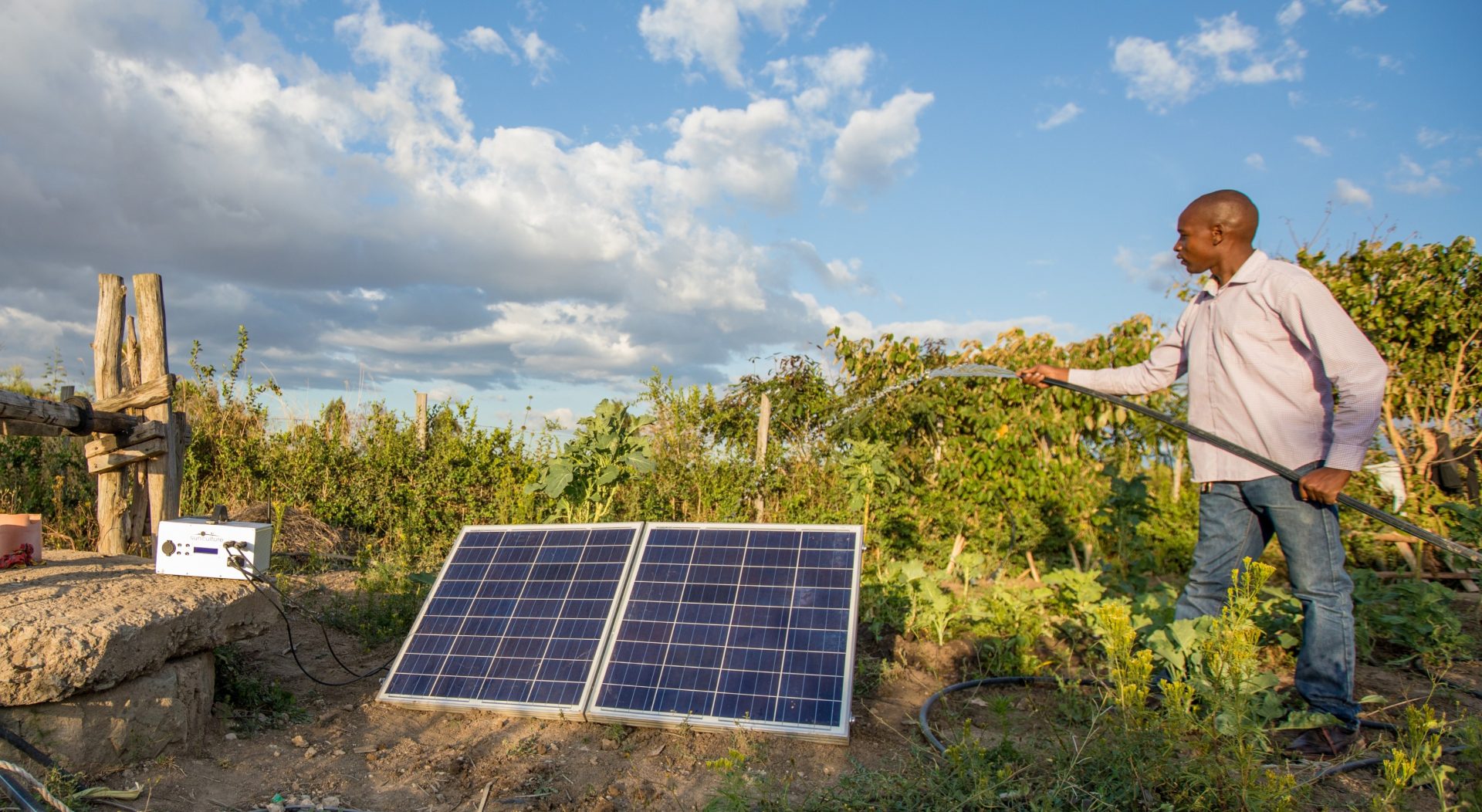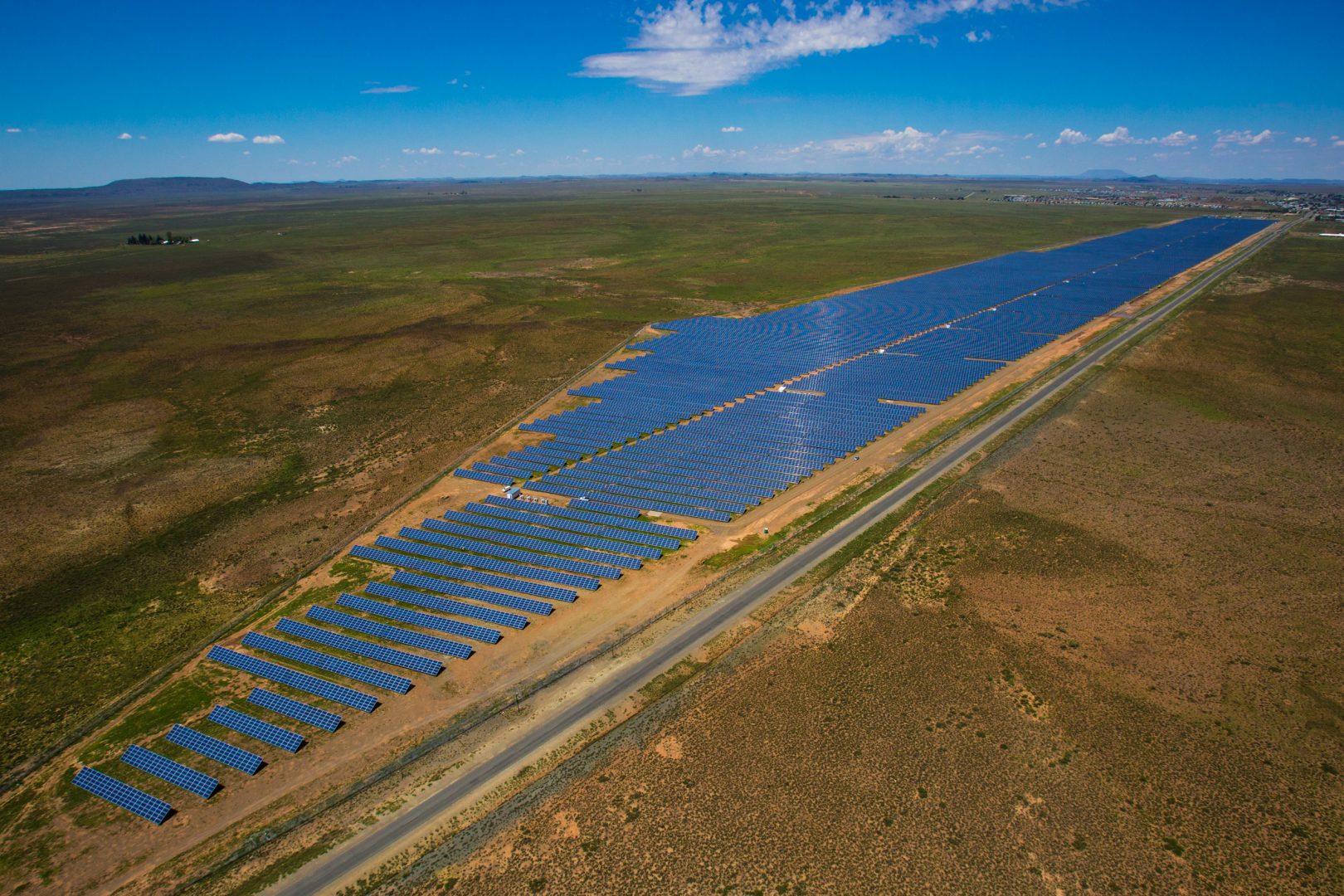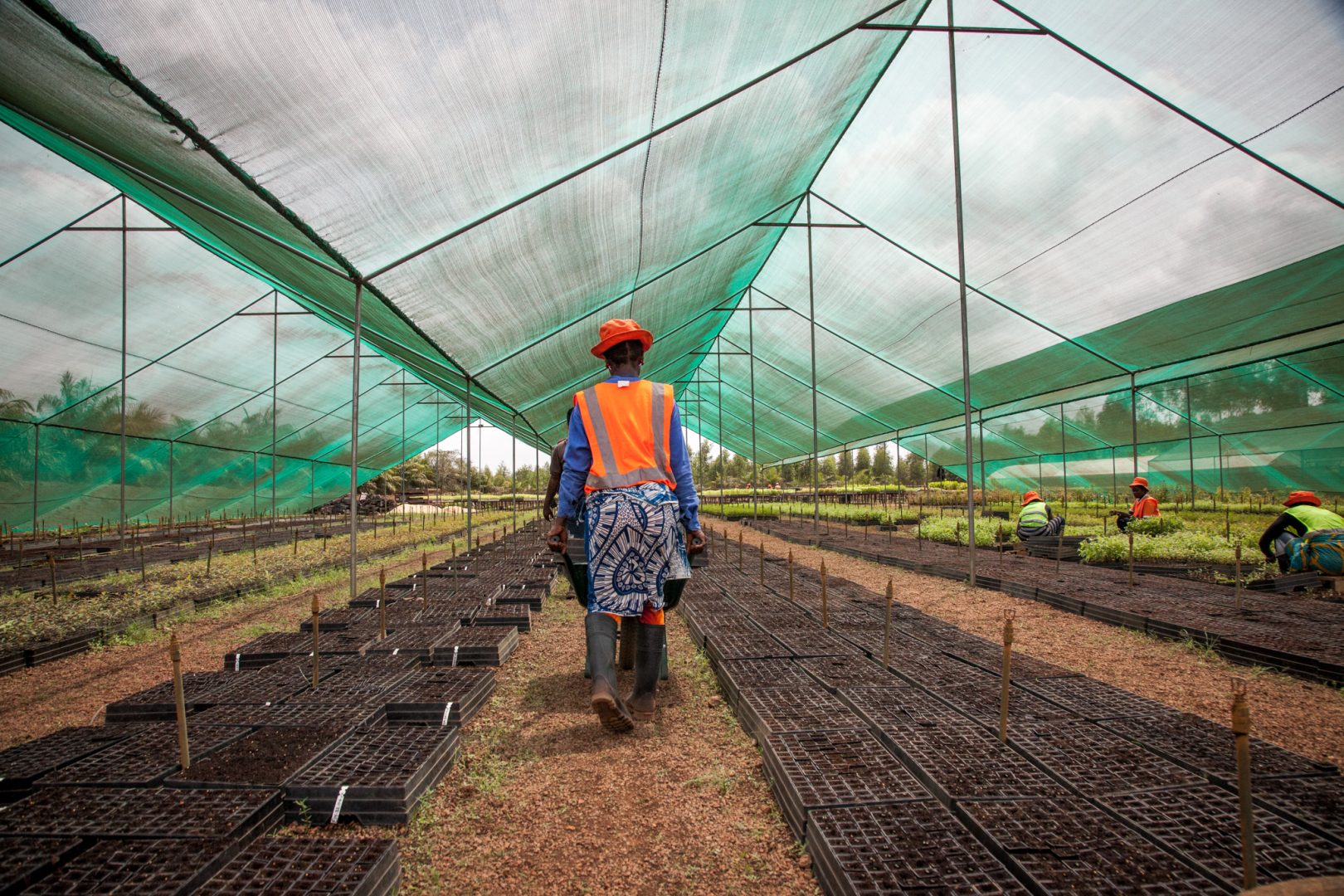Introduction
This article provides an in-depth summary of our Emerging Economies Climate Report 2023 – you can read the full version here.
The climate emergency is having a devastating impact on emerging economies. Without decisive action, this will only become more severe as global temperatures rise and as countries transition toward net zero.
At the same time, the technologies and business models driving the net zero and resilient transition are the growth story of the 21st century. The benefits of this green growth have the potential to deliver prosperity to emerging and developed economies alike.
Responding to climate change risks and opportunities requires scale of action. It also requires urgency as global temperatures continue to rise. 2023 was a record-breaking year at 1.48°C above pre-industrial levels.
Emerging economies are among the nations most exposed to and the least prepared for the effects of climate change. This is particularly the case across Africa, South and South-East Asia, and the Caribbean, where we invest.
Our Emerging Economies Climate Report, first published in 2021, aims to show how the climate emergency is affecting companies, how they are responding, and how investors can better support companies as we move together to a greener future.
The report provides an annual source of insights and data for investors. At BII, it helps us work together with our portfolio to address climate-related risks and maximise opportunities in emerging markets.
This year we once again surveyed senior executives working across our portfolio of companies and funds in Africa, Asia, and the Caribbean. The research was funded by our technical assistance facility, BII Plus.
Since we published our 2022 report, the challenges that climate change presents have become clearer, as have the approaches we need to take to meet these challenges. So, 12 months on, what has changed for the companies and funds in our portfolio?
The 2023 results show a broad increase in the impacts of climate change relative to 2022. They show how climate change is becoming an increasingly significant concern for businesses and investors in emerging economies. They also highlight the difficult decisions climate change is presenting firms, as well as what they need to effectively manage climate risks and realise potential opportunities of the transition.
Key insights
Climate change is impacting more firms.
- 79 per cent of respondents said climate change is impacting their organisation today, an increase from 68 per cent in 2022.
A majority of respondents have experienced acute physical risks.
- 59 per cent of respondents have experienced an extreme weather event (for respondents specifically from corporates, this figure rose to 72 per cent).
Flooding, drought, and heat are the top physical risks.
Concerns about climate-related risks have increased.
- 87 per cent of respondents agreed to some extent that they were concerned about physical climate risks – up from 70 per cent in 2022.
- 73 per cent of respondents agreed to some extent that they were concerned about the risks associated with a low-carbon transition – up from 66 per cent in 2022.
More respondents are concerned about climate change affecting business growth and viability.
- 61 per cent thought climate change will affect the viability and growth of their business in the next five years. In our 2022 survey, 56 per cent thought climate change would affect the viability of their firm in the next five years.
More respondents agree that climate action leads to more long-term business success.
- 97 per cent agreed to some extent that organisations that take steps to reduce their carbon emissions and reduce vulnerability to physical climate change risks will be more successful in the long term – up from 91 per cent last year.
Most respondents have adapted their business strategy in response to climate change.
- 65 per cent have adapted their business strategy and 47 per cent have adapted their financial planning in response to climate change – down slightly from 69 per cent and 52 per cent in 2022, respectively.
- The most common strategic approaches are to exclude certain investment types or to offer green or climate-friendly products.
And an increasing number plan to adapt their business strategy.
- Although there is a slight decrease in those who have actually adapted their business strategy compared with last year, more are planning to do so.
- 17 per cent have plans to adapt their strategy in response to climate change, up from 2 per cent in 2022.
More respondents are calculating their carbon footprint.
- 45 per cent of respondents are calculating their carbon footprint, up from 38 per cent in 2022.
- Of these respondents, 23 per cent have set GHG emissions reduction targets.
Almost all respondents agree that targeted investment is needed to reduce climate exposure.
- 98 per cent of respondents think better investment is needed to help transition to net zero or become more climate resilient, up from 92 per cent in 2022
Our report explores these findings in more detail and below we share a summary. First, we focus on how climate change is impacting businesses. Next, we explore how businesses are responding, and finally, we provide an update on what businesses need to better manage the risks and seize the opportunities they face.
How is climate change impacting businesses in emerging economies?
The impacts of climate change are being felt financially, environmentally, and socially across our portfolio. Of our respondents, 79 per cent said that climate change is impacting them today – up from 68 per cent in 2022 (see chart below).
A total of 59 per cent said extreme climate events have impacted their firm (for respondents specifically from corporates, this figure rose to 72 per cent). This is similar to 2022, where 58 per cent responded yes to the same question. As global greenhouse gas (GHG) emissions continue to rise, and as physical climate change worsens, the impacts of climate change will be felt by more, whether directly or indirectly.
79%
said climate change is impacting their business today.
59%
said their organisation has been impacted by an extreme weather event.
Impact of climate change today
Participants’ responses to the question: ‘Have you experienced an extreme weather event?’
Year
Percentage
2022 (yes)
58%
2023 (yes)
59%
What types of physical climate events are affecting businesses?
Flooding and drought continue to be the physical climate events impacting firms the most. When comparing the results to last year (2022), the trend remains consistent, with the same top three physical climate risks identified in the following order of priority: flooding, drought, and extreme heat.
A total of 47 per cent of respondents ranked flood and drought risk in their top three present physical climate risks, while 43 per cent ranked extreme heat in their top three risks.
“Flooding is biblical… Flooding is huge… if [rice] overflows with too much water, it’s a problem.”
Okey Nwachukwu, Coscharis Farms
Physical climate events affecting businesses
Participants' responses to the question 'What are the top physical risks impacting your organisation'?
Top physical risks
Percentage
Flooding
47%
Drought
47%
Extreme heat
43%
Extreme wind
32%
Coastal flooding
15%
Unsure/Don't know
14%
Wildfire
11%
Concerns about physical and transition risks have increased
In addition to asking respondents how climate change is impacting their firm today, we asked respondents how concerned they are about climate change.
A total of 87 per cent of respondents agreed to some extent that they were concerned about physical climate risks – up from 70 per cent in 2022.
A total of 73 per cent of respondents agreed to some extent that they were concerned about the risks associated with a low-carbon transition – up from 66 per cent in 2022.

Climate-related concerns are affecting business growth and viability
When asked if climate change will affect the viability and growth of respondents’ firms over the coming years, 61 per cent agreed it would over the next five years, and 76 per cent agreed it would over the next ten years.
In our 2022 survey, 56 per cent thought climate change would affect the viability of their firm in the next five years and 72 per cent agreed it would over the next ten years.
61%
agree that climate change will affect business growth and viability over the next 5 years.
76%
agree that climate change will affect business growth and viability over the next 10 years.
How are businesses in emerging economies responding to climate change?
Nearly all respondents agreed that long-term success is linked to lowering GHG emissions and reducing vulnerability to physical climate risks. A total of 97 per cent of respondents agreed – up from 91 per cent in 2022 and 82 per cent in 2021.
97%
agreed that long-term term business success is linked to reducing GHG emissions and vulnerability to climate risks
Will climate-conscious companies be more successful in the long-run?
Participants' response to the question 'Do you think organisations that take steps to reduce their carbon emissions and overall vulnerability to physical climate risks will be more successful in the long term?’
Year
Percentage
2021 (yes)
82%
2022 (yes)
91%
2023 (yes)
97%
The impact of climate change on strategy and financial planning
Climate change continues to affect business strategies and financial planning. A total of 65 per cent have adapted their business strategy and 47 per cent have adapted their financial planning in response to climate change – down slightly from 69 per cent and 52 per cent in 2022, respectively.
Although there is a slight decrease in those who have actually adapted their strategy compared with last year, the number of respondents who are planning to adapt their strategy has increased. 17 per cent have plans to adapt their strategy, up from 2 per cent in 2022.
Firms are adapting their strategies in varied ways
The most common strategic approach is to exclude investments in products and services that have a negative impact on the planet. Of those who are adapting their strategies, 62 per cent are excluding these investments, a similar figure to the 66 per cent that responded in this way last year. Another common approach is to offer green or climate-friendly products, which 55 per cent of respondents are doing.
See a breakdown of respondents’ strategic approaches in the chart below.
Climate change is impacting operational expenses and access to capital
Keeping operational expenditures low is key to maintaining healthy profit margins. 48 per cent of those who responded that climate change was affecting their financial planning said climate change has increased their operational expenditure, up from 30 per cent in 2022.
Of those who responded that climate change was affecting their financial planning, 46 per cent said climate change had affected their access to capital, down from 59 per cent last year.
See a breakdown of respondents’ financial planning measures in the chart below.
65%
have adapted business strategy in response to climate change
47%
have adapted financial planning in response to climate change
Impact of climate change on strategy and financial planning
Participants’ responses to the question: 'How has climate risk influenced your organisation's business strategy?'
Area
Percentage
Excluding certain investment types
62%
Offering green products
55%
Stakeholder engagement
51%
Targeting new markets
46%
Changed investment strategy
39%
Satisfied climate reputation
30%
Changes in supply chain management
28%
Investment in R&D
25%
Other
16%
Participants’ responses to the question: 'How has climate risk influenced your organisation's financial planning?'
Area
Percentage
Increased operational cost
48%
Access to capital
46%
Capital expenditure and allocation
46%
Revenues
44%
Assets
40%
Choice of acquisition and divestments
38%
Liabilities
10%
Decreased operational expense costs
6%
Other
6%
More climate-related metrics are being monitored
Many respondents have put in place metrics and targets to drive their response to climate risks, mostly through monitoring GHG emissions. A total of 45 per cent of respondents are calculating their carbon footprint (up from 38 per cent in 2022), with 30 per cent calculating only scope 1 and 2 emissions, and 15 per cent calculating scope 1, 2 and 3 emissions.
Out of those calculating their carbon emissions, 23 per cent have set reduction targets. Some firms are keen to monitor GHG emissions but lack the resources to do so: 80 per cent of respondents who do not calculate their carbon footprint would like to start. Interviewees suggested they lacked sufficient expertise and advisory or capacity building support to measure their GHG emissions.
45%
of respondents are calculating their carbon footprint – up from 38 per cent in 2022.
Monitoring greenhouse gas emissions
How many respondents are calculating their carbon footprint?
Monitoring GHG emissions
Percentage
Yes - scope 1 and 2 only
30%
Yes - scope 1, 2 and 3
15%
No
28%
Planning to
26%
What do businesses need to effectively tackle climate change?
Firms in emerging economies face considerable challenges. To grow, they must navigate a complex and shifting socio-political landscape in a sustainable way, reducing climate impacts and building resilience to climate risk.
Firms in emerging economies are often confronted by a host of additional pressures associated with the impacts of climate change, despite most of these economies having done little to contribute to it. That means they need support to improve their climate resilience and ensure their success in the long term.
Our research, primarily from the qualitative views of the respondents and interviewees, uncovered four areas where firms in emerging economies expressed the greatest need for support:
- Training is needed to build awareness and capacity to act on climate change
- Targeted technical assistance will help firms act more accurately in key areas
- Targeted funding and more investment are needed
- Policy and regulatory conditions will drive more effective climate action
“There is a cost that can make transitioning challenging. A smaller hospital providing healthcare in a rural area can’t afford the upfront cost of solar… The current frameworks and industry papers make it challenging for smaller SMEs to adopt. Yet we all want to contribute, but running a TCFD-grounded process is not always feasible and running a sub-set may not be considered acceptable.”
Survey respondent
Conclusion
This research highlights that climate change impacted more firms in emerging economies in 2023 than the already high levels of impact seen in 2022 and 2021. In addition to more respondents actually experiencing physical climate change, concerns about both physical climate risks and transition risks have increased.
Respondents are also concerned about how climate change will affect business growth and viability. However, almost all respondents – 97 per cent – believe that the right climate action will lead to long-term business success.
The urgency of the climate challenge – and the rate of change in sustainability legislation and practices – means that firms, including those in emerging economies, are building skills and approaches to tackle and respond to climate change.
Encouragingly, progress continues to be made in managing climate impacts in certain areas. A majority of respondents have adapted their strategies in response to climate change and a growing number of respondents are planning to follow suit. There has also been progress in respondents measuring and managing carbon emissions, with 7 per cent more calculating their carbon footprint when compared with 2022.
Yet there’s much more work to be done. The findings of this survey show businesses have fundamental concerns about flooding, drought, and heat, but despite this, most are not yet financially planning in response. In many cases this is because they lack the necessary knowledge and resources. This highlights an opportunity for investors of all types to step up their support, not just because of the development impact of climate mitigation and adaptation-focused investing, but because it protects financial return.
Institutions like BII play an important role in supporting businesses in emerging economies as they respond to climate change. We will continue to monitor the views of our partners so that our approach supports economic transformation, a just transition to net zero, and the resilience of our portfolio in the best and most targeted way possible.
This year’s report was funded by our technical assistance facility, BII Plus.






